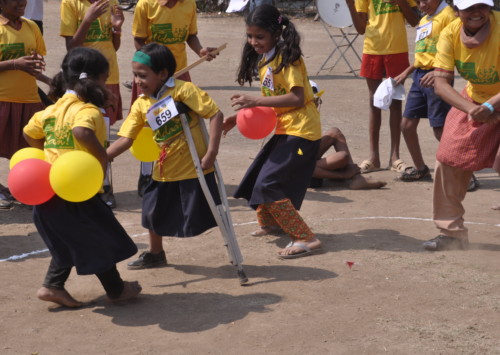New disabilities bill passed in India
Passing of the bill has been hailed as a step forward for the rights of disabled people even as some key concerns remain unaddressed.
The Rajya Sabha, or the upper house of Parliament in India, passed The Rights of Persons with Disabilities Bill, 2014, which had been pending after approval in the lower house. On the last day of the Winter Session of the Parliament, this was the first and only bill to have been passed. The new bill was brought in to replaces the Persons with Disabilities (Equal Opportunities, Protection of Rights and Full Participation) Act, 1995. The new bill was proposed to ensure compliance with the UN Convention on Rights of Persons with Disabilities, which India signed in 2007.
Although the World Health Organisation, in a report in 2011, estimated that 15.3 pc of the world’s population deals with disability of one kind or the other, Indian census data in the same year approximated disabled people at 2.21 pc of the population. However, other reports place the figure at around 5 pc. Hailed as a significant step for the rights and entitlements of disabled persons in India, this bill has also expanded the definition of disability in legal terms to include a total of 21 conditions, with inclusion of Parkinson’s disease and acid attack survivors. Reservation for the disabled in government jobs has seen an increase from the existing 3 pc to 4 pc and in educational institutions from the existing 3 pc to 5 pc, with free education for the disabled in the age bracket of six to eighteen years.
Hundreds of people with #disabilities celebrate passage of Rights of Persons with Disabilities Bill 2016 at Jantar Mantar #RPWDBill#CRPDpic.twitter.com/FNl1DiG38G
— United Nations India (@UNinIndia) December 16, 2016
The bill outlines the consequence of violation of any provision in the act, resulting in imprisonment and/or monetary fine. This is significantly different from the existing bill as there were no penal punishments in place earlier. A jail time between six months to five years has been mandated for several offences, including assaulting, insulting, intimidating, and denying food to a disabled person. Sign language, for the first time, has been recognised by the bill as an official mode of communication. The bill was passed in the Parliament in the Winter Session that has remained largely unproductive. Lack of discipline has plagued debates, particularly on the burning issue of demonetisation in the country, as it hasn’t yet been addressed by the Indian Prime Minister Narendra Modi. In such an environment, the passing of a bill in the upper house comes as an achievement.
Clause for concern
Even as passing of the bill has been considered a progressive move that will improve the lives of disabled persons in India if implemented successfully, there have been a few reservations expressed. The bill, passed without due discussion and with 119 amendments, has been termed by some activists as lacking in certain key aspects. CP Narayanan, a member of the Communist Party of India (Marxist) stated, “Though the conditions of the bill are good, the government seems to have brought in clauses that may curtail the rights of the disabled. That is my fear.” As has been pointed out, the Financial Memorandum does not provide any estimate of the financial resources or budget required to meet obligations under the bill.
Another aspect that has left many worried is the inconsistency of the bill with the Indian Penal Code, mostly in terms of women’s rights. This includes the conditions for termination of pregnancy and the minimum penalty for “outraging the modesty” of a woman. As per studies by research institute PRS Legislative, the ‘Penalty for outraging the modesty of a woman’ clause (Clause 105b) in the bill has in reality reduced the minimum penalty for offenders against women with disabilities. The minimum sentence is six months, as opposed to existing laws in the Indian Penal Code that prescribes offenders a minimum sentence of one year.
The section 3(3) allowing discrimination against a disabled person if it is “a proportionate means of achieving a legitimate aim” is being deemed problematic by some. Prasanna Kumar Pincha, the only disabled person till date to be appointed Chief Commissioner for Persons with Disabilities, welcomed the bill but said this clause leaves “legitimate aim” open to the subjective interpretation of the bureaucracy. Even with these valid concerns, the passing of the Disabilities Bill has been a landmark occasion for disabled persons in India who can look forward to more dignity with the proper implementation of the provisions of the bill once it becomes a law.














